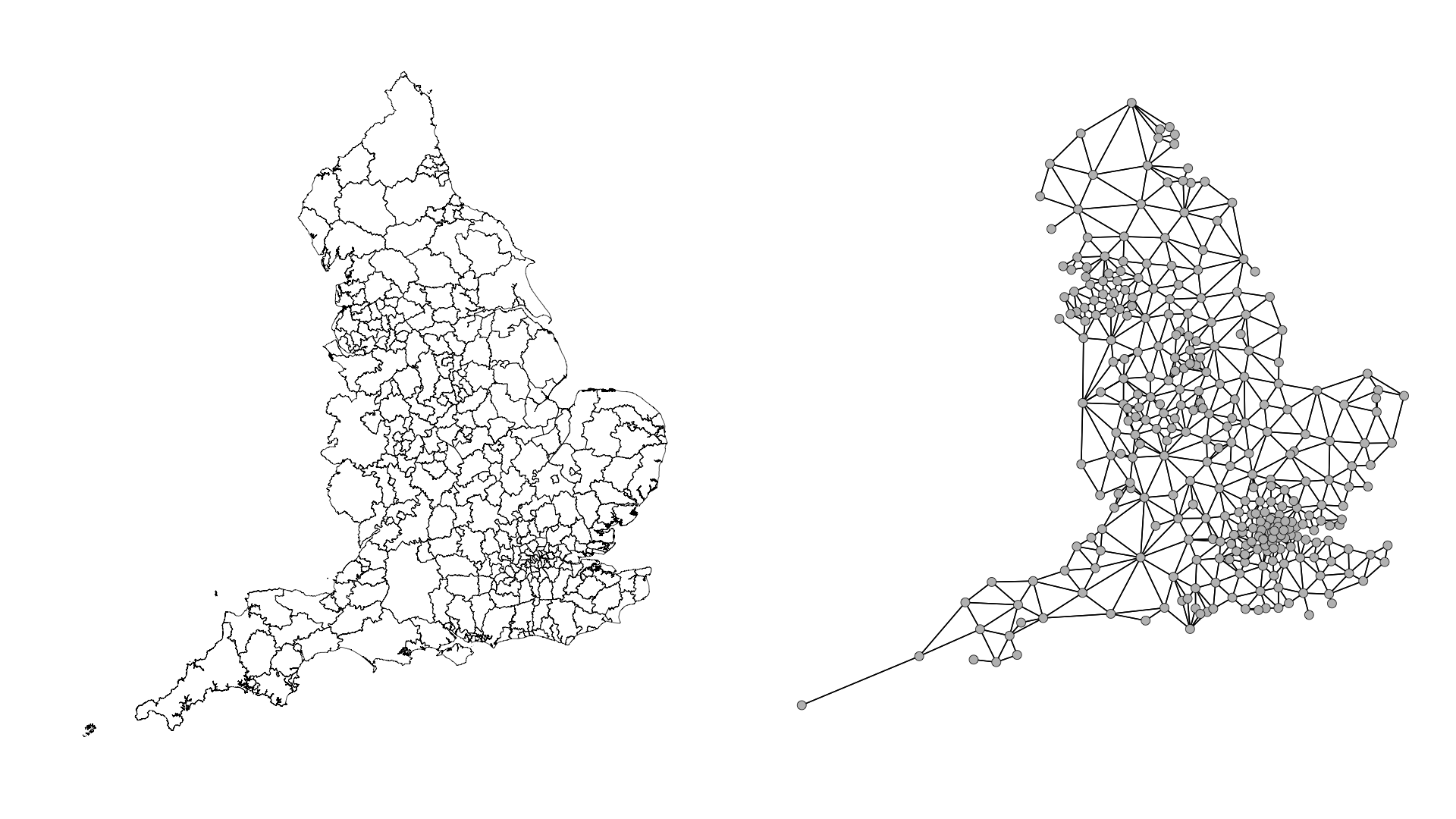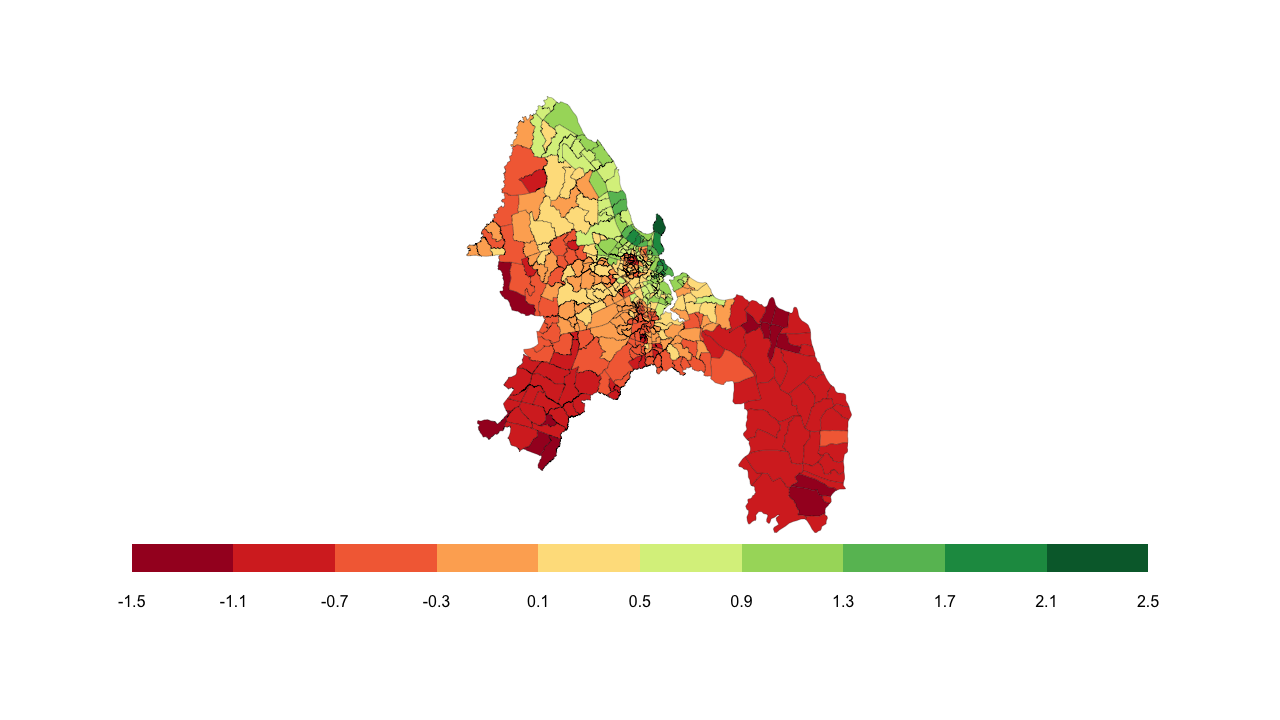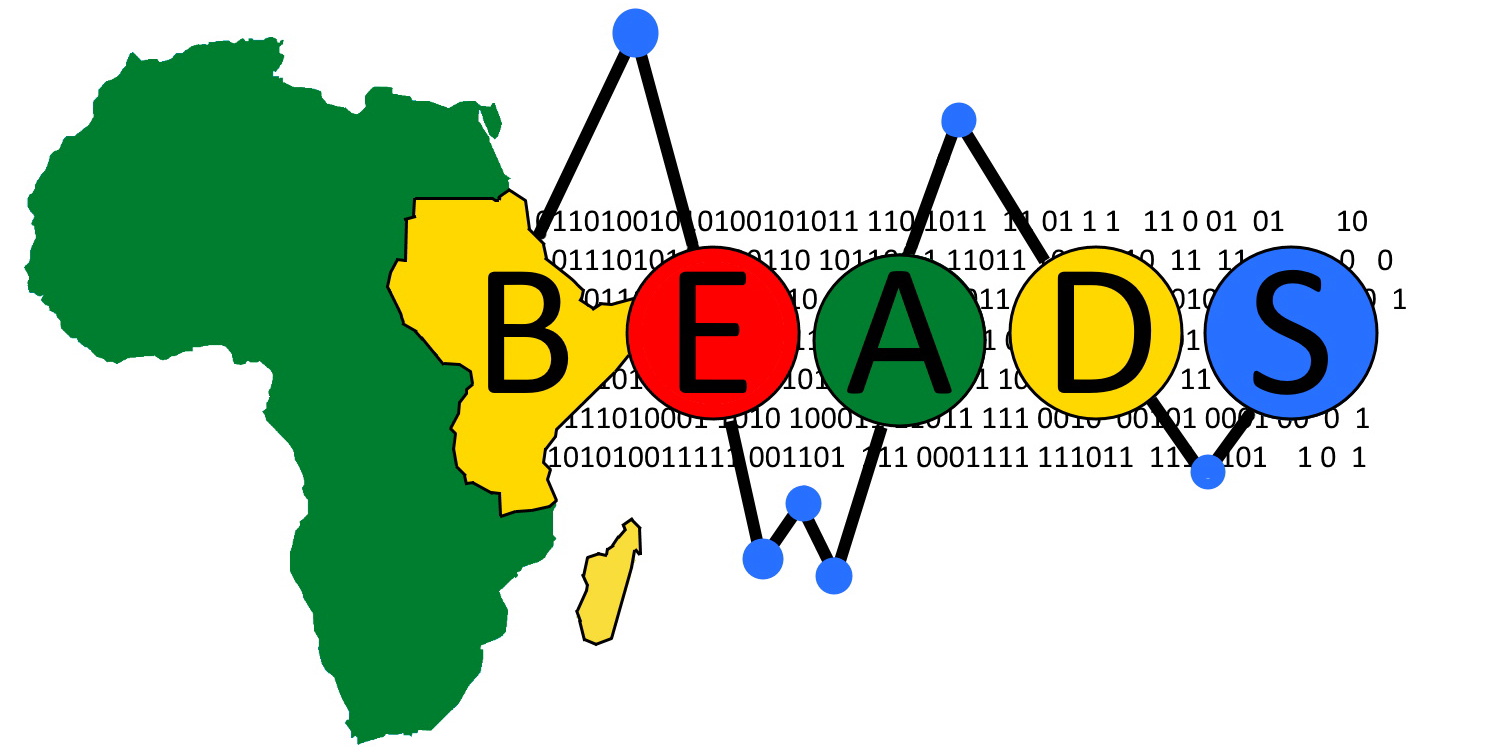

—- 📦 The
BSBT R package allows you to fit the Bayesian Spatial
Bradley–Terry model to comparative judgement data sets. The package
estimates the quality of each object in the data set based on the
observed comparisons. The package includes functions to construct the
prior distribution covariance matrix from a network or set of
coordinates. The package also contains functions to run a number of
different MCMC algorithms to estimate the level of deprivation in each
aobject in the data set. Also included is a comparative judgement data
set on deprivation in Dar es Salaam, Tanzania.
You can install BSBT by calling the following
commands:
install.packages("BSBT")
#devtools::install_github("rowlandseymour/BSBT", dependencies = TRUE) #for development versionThe first step is to create a network from the set of areas. Here’s
an example of a network made from Local Authority Areas in the England:
 There are two ways to do this in
There are two ways to do this in
BSBT. The first is to construct an adjacency matrix, which
describes which areas are neighbours. This can then be fed into
constrained_adjacent_covariance_function. The second way is
to use coordinates which can be used
withconstrained_covariance_matrix. This uses the Euclidean
distance metric.
The BSBT package uses MCMC the estimate the model
parameters. The MCMC can be run by calling the run_mcmc
function. This make take some time, up to a few hours, depending on how
many areas there are in the model. Here are the results of the method
applied to a comparative judgement data set in Tanzania:

In the package, there is a comparative judgement data set collected
in Dar es Salaam, Tanzania. It includes over 75,000 comparisons, where
citizens where are to compare subwards in the city based on deprivation.
Also included are shapefiles for the 452 subwards. These can be accessed
by calling data(dar.comparisons, package = "BSBT") and
data(dar.shapefiles, package = "BSBT").
There is also code for simulating comparative judgement data given
the underlying levels of deprivation. More information can be found by
calling ?BSBT::simulate_contests
R. G. Seymour, D. Sirl, S. Preston, I. L. Dryden, M. J. A. Ellis, B. Perrat, & J. Goulding. (2020). The Bayesian Spatial Bradley–Terry Model: Urban Deprivation Modeling in Tanzania. arXiv:2010.14128.
Using citizen knowledge to model urban deprivation @ Universitas21 Early Career Researcher Workshop 2020 - Modern Slavery, Forced Labour and Human Trafficking: Research Roadmaps to 2030. Deceber 2020.
This work is supported by the Engineering and Physical Sciences Research Council [grant number EP/T003928/1] and the Big East African Data Science research group at the University of Nottingham.
The comparative judgement dataset was collected by Madeleine Ellis, James Goulding, Bertrand Perrat, Gavin Smith and Gregor Engelmann. We gratefully acknowledge the Rights Lab at the University of Nottingham for supporting funding for the comprehensive ground truth survey. We also acknowledge Humanitarian Street Mapping Team (HOT) for providing a team of experts in data collection to facilitate the surveys. This fieldwork was also supported by the EPSRC Horizon Centre for Doctoral Training - My Life in Data (EP/L015463/1) and by EPSRC grant Neodemographics (EP/L021080/1).


